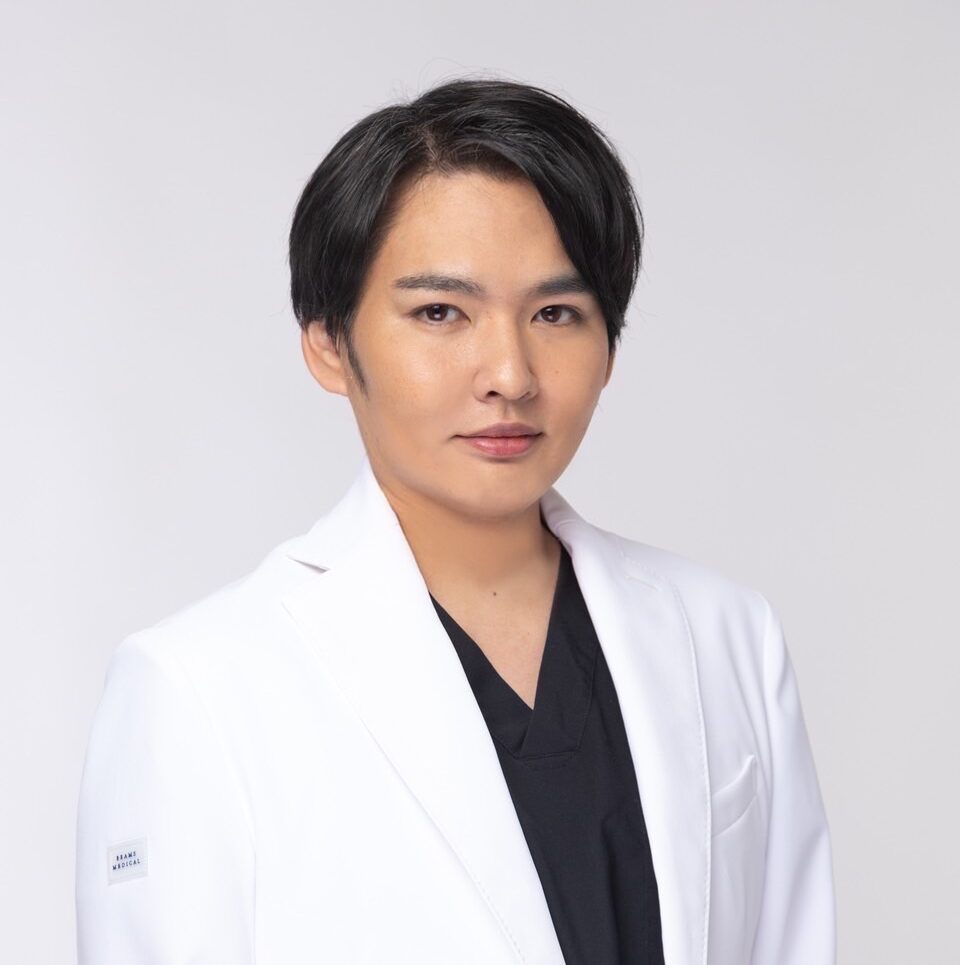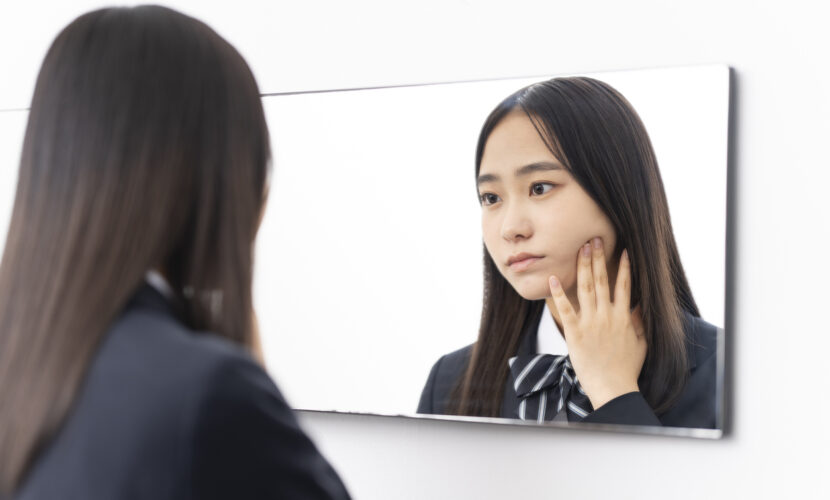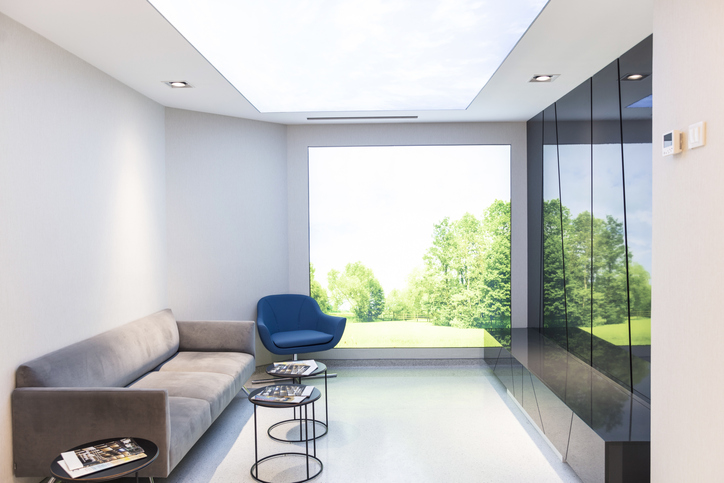Adolescence is a time when skin problems are common due to rapid hormonal balance changes. Acne, pore size, and dryness are especially common, and these are related to various factors such as the external environment, lifestyle, and genetic factors. Proper skin care and lifestyle changes are essential for maintaining healthy skin. Here, we will explain the causes of skin problems specific to puberty and their countermeasures to support the creation of healthy skin.

Graduated from the Faculty of Medicine, National Kumamoto University. After serving as the director of major beauty clinics in Japan, etc., he opened Aladdin Aesthetic Clinic in 2023. He is a professional in aesthetic medicine with a doctorate in anti-aging research and many years of experience. With the motto of "Toward the realization of cosmetic medicine without lies," he aims to be the "Only One" together with his patients.
What are the main causes of skin problems during puberty?

Adolescence is a time of great physical and emotional change, and many teenagers suffer from adolescent skin problems. So why do skin problems increase during this period? The following is a detailed explanation of the main causes.
Overproduction of sebum due to hormonal imbalance
At puberty, the secretion of sex hormones (androgens) increases rapidly in the body. Androgens stimulate sebaceous glands and promote sebum production. This excess sebum clogs pores and promotes the growth of acne bacteria. As a result, skin problems such as acne and pimples are more likely to occur.
| point | Description. |
|---|---|
| Excessive secretion of sebum | Stimulation of sebaceous glands by androgens |
| clogged pores | Accumulation of excess sebum and dead skin cells |
| Growth of acne bacteria | Causes of acne and inflammation |
In addition, hormonal imbalance also affects the skin turnover (metabolism) cycle. Normal turnover is a 28-day cycle, but when this cycle is disrupted by hormones, dead skin cells accumulate on the skin surface, causing clogged pores and dull skin.
Effects of external environment and lifestyle on the skin
During adolescence, the rhythm of life tends to become irregular due to school and club activities. These lifestyle disruptions directly affect the health of the skin.
- Sleep deprivation: Decreased secretion of growth hormones and reduced skin repair function.
- Inappropriate diet: High-fat, high-sugar diet increases sebum secretion and aggravates skin problems.
- Lack of exercise: blood circulation is reduced and skin metabolism is decreased.
In addition, the external environment includes ultraviolet rays and air pollution. UV rays can reduce the skin's barrier function, causing dryness and blemishes. Air pollutants can enter the pores and cause irritation.
Skin changes caused by genetic factors and stress
Genetic factors also influence adolescent skin problems. If a family member has a history of acne or skin problems, the likelihood that you will have similar problems increases. Skin quality, sebum production, and hormonal susceptibility are influenced by genetics.
| point | Description. |
|---|---|
| genetic factor | Inheritance of skin texture and hormone sensitivity |
| stress | Hormonal imbalance and promotion of inflammation |
| psychological health | Relationship between skin condition and mental health |
In addition, puberty is a time of increased emotional stress. Stress from school life, relationships, and uncertainty about the future further disturbs the hormonal balance. Stress promotes sebum production and increases the production of cytokines that cause skin inflammation.
Adolescent skin problems are caused by a complex combination of factors, including hormonal imbalance, lifestyle, external environment, genetic factors, and stress. Understanding these causes and taking appropriate care and lifestyle changes can improve skin problems.
Types of skin problems common during puberty and how to deal with them

Adolescence is a time when the skin is prone to a variety of problems due to hormonal imbalances and external environmental influences. In particular, acne, open pores, dry and sensitive skin are frequently observed. These problems may worsen if left untreated, so early action is necessary.
This section details the specific causes of skin problems that are common during puberty and how to deal with them. Practicing skin care methods tailored to each problem will help maintain healthy skin.
acne
Acne is one of the most common skin problems during puberty, especially on the face, chest, and back. This is mainly due to the increased secretion of sebum and clogged pores caused by changes in hormonal balance. Sebum and keratin block the pores, and acne forms when acne bacteria breed and cause inflammation.
As a basic preventive measure, daily face washing is important. However, too much washing can cause excessive sebum production, so it is essential to wash the face in moderation. It is also important to moisturize thoroughly after washing the face to prevent acne from worsening, and to maintain the skin's barrier function. Eating habits should also be reviewed, and reducing the intake of oily and sweet foods can also help prevent acne.
Pore opening
During puberty, pores may become more noticeable. This is due to the increased secretion of sebum, which causes the pores to widen. Pore openings are especially common around the nose and cheeks, and are difficult to cover with makeup.
To improve pore size, it is important to take care of your skin to prevent clogged pores. Keep pores clean by cleansing and washing face to remove excess sebum and dirt. After cleansing, use an item that tightens pores, such as astringent lotion, to prevent the appearance of pores.
In addition, skin care products containing ingredients such as vitamin C derivatives and niacinamide are effective in controlling sebum and tightening pores. Regular exfoliation should also be incorporated to promote skin turnover and prevent clogged pores.
Dry or sensitive skin
During puberty, while sebum is abundant, dry and sensitive skin may also occur. This is due to the skin's immature barrier function, which makes it sensitive to external stimuli. Furthermore, the sebum balance is easily disturbed and lack of moisture in the skin leads to dry skin.
To prevent such skin problems, gentle moisturizing care is necessary. It is important to choose cleansers and face washes for sensitive skin that do not contain alcohol or strong cleansing ingredients, and to wash your face gently. Since UV damage during the day can also cause dryness, it is important to remember to use sunscreen to protect the skin from external factors.
Daily care habits to prevent skin problems during puberty

Daily care habits are extremely important in preventing skin problems during puberty. In addition to skin care, diet and lifestyle also have a significant impact on the skin, so reviewing daily habits can help prevent problems. Here, we will explain in detail the factors that have a particularly negative impact on the skin and how to improve them.
Is it true that oily or sweet foods aggravate acne?
Adolescents who like oily and sweet foods, though not exclusively during puberty, are more prone to acne. There are several reasons for this. Eating too much greasy food causes excessive sebum production, which can easily clog pores. In addition, consuming a lot of sweet foods, which rapidly raise blood sugar levels, stimulates insulin secretion and disrupts hormonal balance, making acne more likely to occur.
To prevent acne, it may be important to avoid excessive fat and sugar intake. Simply avoiding fried foods, snacks, and carbonated beverages can have a significant effect on preventing acne. In addition, balancing the diet and stabilizing hormone and sebum secretion in the body are keys to preventing acne from worsening.
How a Balanced Diet Supports Skin Health
To prevent skin problems, a well-balanced diet is fundamental. Foods rich in vitamins and minerals are especially essential for skin health. Vitamin A promotes skin metabolism, while vitamin C helps collagen production and maintains skin elasticity. Vitamin E also has antioxidant properties and prevents skin aging.
Specifically, it is effective to include green and yellow vegetables, fruits, seafood, and nuts in the daily diet. Actively consuming these foods will help maintain normal skin turnover and improve skin problems that are common during puberty. Hydration is also important. If the body does not have enough water, the skin can easily become dry and skin problems can worsen, so be sure to drink enough water.
Adverse effects of stress and lack of sleep on the skin
Adolescence is also a time of increased emotional strain due to stress and the pressures of school life. Stress is a major cause of skin problems, especially acne and skin dryness, which can worsen. Stress can lead to hormonal imbalance and increased sebum production, which can cause rough skin and acne.
In addition, lack of sleep also has a negative impact on the skin. Staying up late or living irregularly disrupts the skin's turnover (cell regeneration cycle) and reduces the skin's ability to regenerate. In particular, puberty is a period of high growth hormone secretion, and growth hormone is essential for skin repair. Lack of sleep decreases the secretion of this hormone, which can worsen the condition of the skin.
To prevent this, it is important to lead a regular life and get enough sleep. To relieve stress, it is effective to have time for relaxation, such as through hobbies or exercise. Also, try to sleep in a relaxing environment and avoid using smartphones and computers before going to sleep. Proper sleep and stress care are major steps toward preventing skin problems.
summary
Everyone experiences skin problems during puberty, but they can be improved with proper care and lifestyle changes. Maintain healthy skin by practicing daily skin care, eating a well-balanced diet, and getting enough sleep. If skin problems do not improve, it is important to consult a dermatologist as soon as possible. Overcome adolescent skin problems cheerfully.
At Aladdin Aesthetic Clinic, based on our many years of experience in cosmetic medicine and cosmetic dermatology and the knowledge of our doctoral degree, we provide counseling that aims to be "only one", offering the best treatment for each person we meet. We offer only the necessary treatments without any unnecessary information or suggestions.
Feel free to use our official LINE account for 24-hour counseling and reservations. Please feel free to contact us for free counseling for the first time or if you have any concerns.






